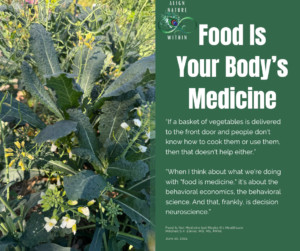Signs to look out for with Genetic Haemochromatosis
- Liver Damage: Chronic iron overload can lead to liver cirrhosis, which might be visible as fibrosis or scarring on imaging studies.

- Joint Damage: Hemochromatosis can cause joint pain and damage, often resembling arthritis, particularly in the hands and fingers.
- Heart Issues: Iron accumulation in the heart can lead to cardiomyopathy, which might be visible through echocardiograms or MRIs.
- Pancreatic Damage: Excess iron can damage pancreatic cells, potentially leading to diabetes (often referred to as “bronze diabetes” due to skin discoloration).
- Skin Changes: Some individuals may experience a slate-gray or bronze discoloration of the skin due to iron deposition.
What does Haemochromatosis have to do with anything related to Acid reflux?
Many Medical Specialists are too, even my very own Gastroenterologist. One approach European Gastroenterologists discovered was a drug many Hfe suffereres were now being recommended It was ……Nexium! A powerful class of drugs called proton pump inhibitors.These drugs decreases the amount of acid your stomach produces. It works by blocking the proton pump in the stomach’s cells. When the proton pump is blocked, your stomach makes less acid.
Why Stomach Acid is Your Best Ally, Not Your Enemy
Stomach acid, primarily composed of hydrochloric acid (HCl), plays several essential roles in digestion and overall health:
- Digestion of Food: Stomach acid helps break down food, particularly proteins. It activates pepsinogen to pepsin, an enzyme that begins the digestion of proteins into smaller peptides.
- Nutrient Absorption: Adequate stomach acid is necessary for the absorption of certain nutrients, including vitamin B12, iron, calcium, and magnesium. Low acid levels can hinder the release of these nutrients from food.
- Microbial Defense: Stomach acid acts as a barrier against pathogens. Its low pH helps kill harmful bacteria and viruses that may enter the digestive tract, reducing the risk of infections.
- Activation of Enzymes: Stomach acid activates digestive enzymes and aids in the proper functioning of the digestive system. This ensures efficient breakdown and absorption of nutrients.
- Signal for Digestion: The presence of acid in the stomach signals the pancreas and gallbladder to release digestive enzymes and bile, essential for further digestion and nutrient absorption in the small intestine.
- pH Regulation: Stomach acid helps maintain an optimal pH level in the stomach, which is crucial for the overall digestive process. The acidic environment promotes the proper functioning of digestive enzymes.
In summary, sufficient stomach acid is vital for effective digestion, nutrient absorption, immune defense, and overall digestive health. Low stomach acid can lead to digestive issues, nutrient deficiencies, and an increased risk of infections.
So what are some of the causes of acid reflux, heartburn and digestive pain?
- Dietary Choices: Certain foods and beverages, such as spicy foods, citrus fruits, tomatoes, chocolate, coffee, alcohol, and high-fat meals, can relax the lower esophageal sphincter (LES) or increase stomach acid production.
- Overeating: Large meals can put pressure on the LES, leading to reflux. Eating too close to bedtime can also contribute to nighttime symptoms.
- Obesity: Excess weight can increase abdominal pressure, pushing stomach contents up into the esophagus.
- Small Intestinal Bacterial Overgrowth or SIBO can also be a driver of irritation due to fermentation of lactic acid and other gases from poor microbiome in the gut.
- Smoking: Tobacco use can weaken the LES and impair saliva production, which helps neutralize stomach acid.
- Pregnancy: Hormonal changes and increased abdominal pressure during pregnancy can lead to reflux.
- Hiatal Hernia: This condition occurs when part of the stomach pushes through the diaphragm into the chest cavity, affecting the function of the LES.
- Medications: Certain medications, such as nonsteroidal anti-inflammatory drugs (NSAIDs), certain blood pressure medications, and some sedatives, can relax the LES or irritate the esophagus.
- Stress: High stress levels can affect digestion and increase acid production, leading to symptoms.
- Poor Posture: Slouching or lying down after eating can exacerbate reflux symptoms by putting pressure on the stomach.
- Gastroesophageal Reflux Disease (GERD): Chronic acid reflux can lead to GERD, a more severe form of the condition that requires medical attention.
Addressing these factors through lifestyle changes, dietary adjustments, and medical guidance can help manage and alleviate symptoms.
How do we then Treat the Drivers of the Stomach and Digestive Dis-Ease Naturally?

Do Natural Formulas work?
Natural herbal formulas can help manage acid reflux and heartburn through various mechanisms. Often working alongside a Naturopath takes a little longer and some tweaking depending upon the length of time the person has been affected…Here are some common ways they work:
- Soothing the Digestive Tract: Many herbs, like Slippery elm and Marshmallow root, contain mucilage, which coats and soothes the mucous membranes of the digestive tract, providing relief from irritation.
- Reducing Inflammation: Herbs such as Ginger and Turmeric have anti-inflammatory properties that can help reduce inflammation in the esophagus and stomach lining, alleviating discomfort.
- Promoting Digestive Health: Peppermint and Fennel can aid digestion by relaxing the digestive muscles, improving the passage of food, and reducing bloating, which can contribute to reflux symptoms.
- Balancing Stomach Acid: Chamomile and licorice (specifically deglycyrrhizinated licorice, or DGL) can help balance stomach acid levels, reducing excessive acidity that can lead to reflux.
- Strengthening the Lower Esophageal Sphincter (LES): Certain herbs may help tone and strengthen the LES, which can reduce the likelihood of acid reflux. Hibiscus is one such herb believed to support this function.
- Antioxidant Properties: Many herbs are rich in antioxidants, which can help protect the esophageal lining from damage caused by acid exposure. For example, Green tea contains catechins that may provide protective effects.
- Relaxation and Stress Relief: Herbs like Chamomile, Marshmallow root, valerian root can promote relaxation and reduce stress, which may indirectly help manage reflux symptoms, as stress can exacerbate digestive issues.
- Digestive Enzyme Support: Some herbal formulas may include ingredients that support the production of digestive enzymes, improving overall digestion and nutrient absorption, which can help reduce symptoms.
When considering herbal remedies for acid reflux, it’s important to consult with a healthcare professional to ensure safety and proper use, especially if you’re taking other medications or have underlying health conditions.
You can recover with compliance and support from a Naturopath who will work alongside your other Health Professionals. Seek answers to the drivers of your condition not just the symptoms. A quick fix is not always the best choice and longer term great health IS possible!
Yours in Light and Health,



